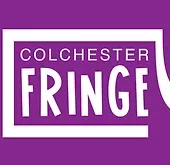Edinburgh Fringe 2025
Her Raving Mind
Fenia Gianni

Genre: Drama, New Writing, Spoken Word
Venue: Just the Tonic - The Caves
Festival: Edinburgh Fringe
Low Down
Fenia Gianni brings to the stage a dark story showing how the ripple effects of childhood emotional abuse have a deep lasting effect on intimate adult relationships by unconsciously replicating the same abuse mechanisms in the search to resolve profound unresolved conflicts within our scarred souls.
Review
Within the dark setting of the Caves of Just the Tonic, Greco-British actress and writer Fenia Gianni takes us on a one-hour journey exploring the scarring effects of childhood emotional abuse, telling us a story as narrated by a patient of a mental institute. The show set-up is very minimal and Fenia is dressed in simple overalls, underlining that this is not a simple casual interview but a path towards a long-lasting process of healing which is probably far from finished. Fenia is supported on stage by actors Edward Garcia and Kat de Leiros (the latter also playing the role of the therapist) who give form to a series of secondary characters.
The name of the protagonist is Electra, oftentimes referred to by the diminutive EL. EL explains to her therapist how her Athenian childhood has been marked by the obsessive presence of a narcissistic mother who subtly made little EL the subject of a series of emotional abuses that sank slowly but surely into her soul, only to explode later in adult life.
This is a serious subject and not to be taken lightly. As the Roman philosopher Seneca wrote 2,000 years ago in De Vita Beata:
“Even slaves, when given the choice, prefer a beating to abusive words; blows hurt the body, but insult hurts the mind.”
In Electra’s story, the mother-child bond made her unaware that she was the target of maternal bullying. After all, whom can you trust more than your mother? Yet, slowly, as she grows up, Electra comes to understand there is something odd in the continuous downgrading, gaslighting and criticism by a mother who increasingly seems to be envious of her daughter as age and time compel the new generation to replace the old.
When abuse becomes the norm, it is natural for the abused to unconsciously look for a similar pattern in intimate life so as to recreate the same mechanism within the push-pull dynamic of the couple. An idealised boyfriend and husband slowly turns into the protagonist of domestic violence. It’s the trap of Electra’s mind, a trap from which Electra finally wants to escape as she recreated the exact same family dynamics that she left behind when living with her mother in Athens.
The rhythm of the play is engaging, with a series of transitions that avoid falling into the trap of excessive narration: from flashbacks to dance transitions and also the use of half-masks by fellow actors Kat De Leiros and Edward Garcia that seem to physically replicate the condition of a fractured mind.
The ending can lead to different interpretations as it is more symbolic than rigidly framed in the use of words. After all, the mystery of our unconscious and the “irrational” is better represented by symbols and metaphors and takes real form in dreams rather than in intellectual analysis.
Overall, an interesting exploration of a form of abuse that, besides being present in family dynamics, is also very present in other settings such as bullying and cyberbullying, sometimes with tragic outcomes.
Her Raving Mind has, thus, the potential to grow into a great show touching upon a universal theme as old as our civilisation.

























